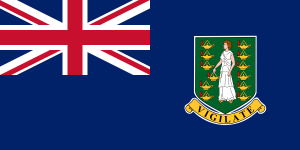Language/Virgin-islands-creole-english/Grammar/How-to-Use-Have
Hi Virgin Islands Creole English learners! 😊
In this lesson, you will learn how to use "have" in Virgin Islands Creole English. "Have" is a very important verb as it is used to form various tenses and aspects. Here, we will focus on its present tense usage. After this lesson, you will be able to use "have" correctly in your daily conversations. Let's get started!
Don't hesitate to look into these other pages after completing this lesson: Questions & Gender.
Present Tense[edit | edit source]
In Virgin Islands Creole English, the present tense of "have" is either "ha" or "have". Both are commonly used and have the same meaning. We use "ha" or "have" to refer to possession, obligation or characteristics that exist in the present.
Possession Example[edit | edit source]
Let's see how "ha" or "have" is used in the context of possession:
| Virgin Islands Creole English | Pronunciation | English |
|---|---|---|
| Mi ha wan ca. | [mi ha wɑn kɑ] | I have a car. |
| Yu have wan big hos. | [ju hæv wɑn bɪg hoʊs] | You have a big house. |
| Ee ha dem riquizit. | [i hɑ dɛm rɪskwɪzɪt] | He/She has the requisites. |
Notice that the first example uses "ha" and the second example uses "have". Both are correct.
Obligation Example[edit | edit source]
Now, let's see how "ha" or "have" is used in the context of obligation:
| Virgin Islands Creole English | Pronunciation | English |
|---|---|---|
| Mi ha fyut aan. | [mi ha fju(t) ɑn] | I have to fight on. |
| Dem have fi du deir work. | [dɛm hæv fi du dɛɪr wɔʁk] | They have to do their work. |
| Ee ha fi go. | [i hɑ fi go] | He/She has to go. |
Again, both "ha" and "have" have the same meaning and are interchangeable.
Characteristic Example[edit | edit source]
Lastly, let's see how "ha" or "have" is used in the context of characteristics:
| Virgin Islands Creole English | Pronunciation | English |
|---|---|---|
| Mi ha lang ned. | [mi ha lɑng nɛd] | I have long hair. |
| Dem have big yaad. | [dɛm hæv bɪg jɑd] | They have a big yard. |
| Ee ha good sint. | [i hɑ gud sɪnt] | He/She has good sense. |
Again, both "ha" and "have" have the same meaning and are interchangeable.
Dialogue[edit | edit source]
To see how "ha" or "have" is used in context, let's take a look at a dialogue between two people:
- Person 1: Yu ha wan kar. ([You have a car.])
- Person 2: Ya, mi ha wan blak wan. ([Yes, I have a black one.])
- Person 1: Ah, dat soun chree. Mi wan wan tu. ([Oh, that sounds cool. I want one too.])
- Person 2: Go a de far lot. Dem have plenti fi shuuz from. ([Go to the far lot. They have plenty to choose from.])
Conclusion[edit | edit source]
Congratulations! Now you know how to use "ha" or "have" in Virgin Islands Creole English when referring to possession, obligation or characteristics that exist in the present. Practice and use it as much as you can, and don't forget to check out Polyglot Club to find native speakers and ask them any questions. Also, remember to check out the Virgin Islands Creole English Grammar page for more useful lessons. 😁
➡ If you have any questions, please ask them in the comments section below.
➡ Feel free to edit this wiki page if you think it can be improved. 😎
Well done on mastering this lesson! Don't miss these related pages to expand your knowledge: How to Use Be & Negation.

